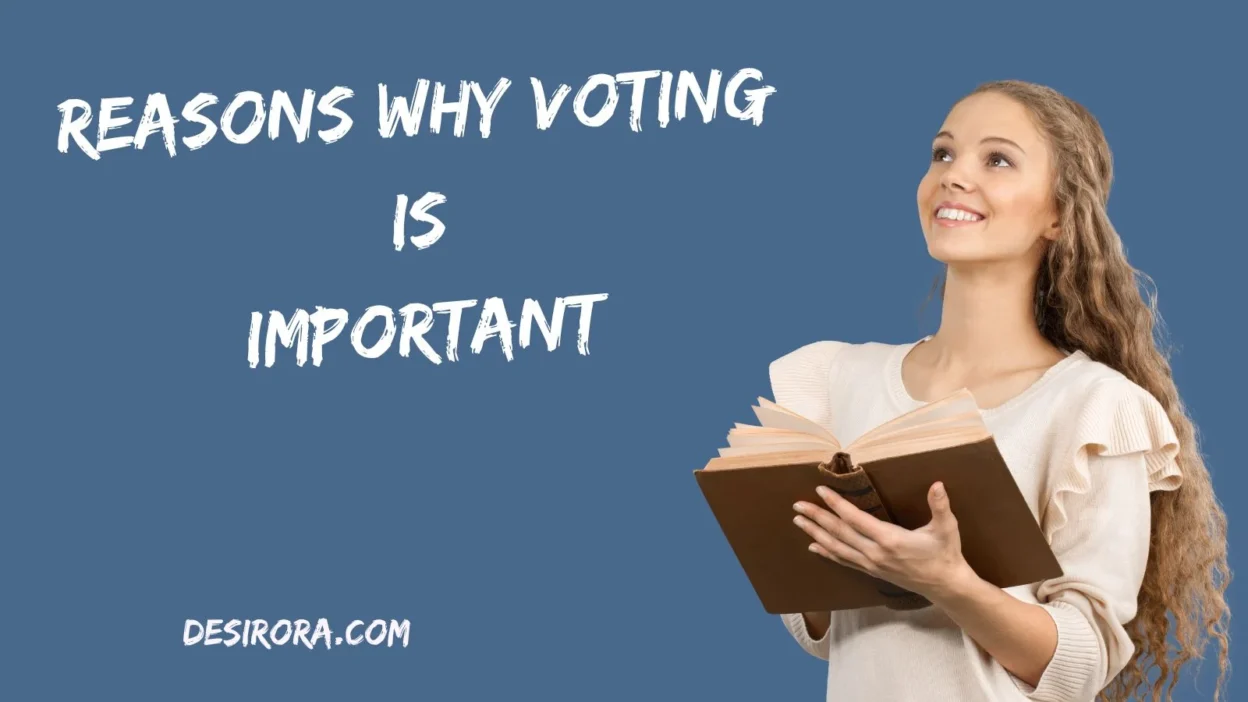Voting is more than a civic duty — it’s one of the most powerful tools you have to shape the direction of your community, country, and future. Whether it’s a national election or a small local vote, every ballot contributes to decisions that impact your rights, your opportunities, and even your daily life. Many people assume their single vote doesn’t matter, but history proves otherwise again and again.
In this guide, you’ll learn the real reasons why voting is important, supported by examples, lived experiences, and practical insights. You’ll also see how voting influences everything from your finances to your freedoms — often in ways you might not have realized.
Understanding the True Power of Your Vote
A single vote can feel small, but collectively, votes are what shape society. When people show up, change happens. When people stay home, decisions are made by a smaller, less diverse group — which can lead to results that don’t represent the whole population.
Your Vote = Your Voice
Think of voting as speaking up in a room full of decision-makers. If you stay silent, someone else speaks for you — and they may not share your needs, goals, or values.
Why Your Vote Holds Power
- Policies change because of voter demand.
- Leaders get elected based on who participates.
- Communities grow stronger when more voices are heard.
- Laws are shaped by the people who choose lawmakers.
Even when an election isn’t close, voting still matters because it influences future policies, community priorities, and funding decisions.
How Voting Shapes Communities and Everyday Life
You may not see the connection immediately, but voting influences almost everything around you — from the roads you drive on to the healthcare options you have access to.
Here are everyday areas shaped by election outcomes:
Infrastructure and Public Services
- Roads, bridges, and public transport
- Electricity and water regulation
- Internet accessibility (especially in rural areas)
Education and Schools
- Funding for public schools
- Teacher salaries
- Curriculum updates
- School safety policies
Public Health and Safety
- Hospital funding
- Emergency services
- Pandemic response plans
- Environmental regulations
Real-Life Example
When voters in one state approved a public education bill in 2018, classroom conditions improved dramatically within two years. Teacher shortages decreased, school meals improved, and new learning programs were added — all because people showed up to vote.
Why Voting Protects Your Rights and Freedoms
Your rights are not guaranteed forever. They’re protected and expanded through political processes — especially elections.
Key Rights Influenced by Voting
- Freedom of speech and expression
- Equal access to education
- Right to privacy
- Worker protection laws
- Digital rights and data safety
When people don’t vote, these rights can be weakened by leaders who don’t prioritize them.
Why It Matters
Voting ensures your needs are represented. If you value certain freedoms, policies, or protections, voting helps maintain and strengthen them.
Voting as a Tool for Accountability and Transparency
Politicians work for the people — and voting is the way you decide whether they keep their jobs. If leaders fail to deliver on promises, elections give you the power to replace them.
Voting Keeps Power in Check
- It prevents long-term abuse of power.
- It encourages honesty and transparency.
- It pushes leaders to stay connected with real community issues.
Accountability Example
A mayor who ignored local road issues for years was voted out after residents finally mobilized and turned out in large numbers. Within the next term, new infrastructure projects were launched — simply because more people voted.
Economic Reasons Why Voting Is Important
Money moves where votes go. Elections influence economic policies that affect everything from your monthly bills to your job security.
Areas Where Voting Impacts Your Finances
- Taxes and tax refunds
- Housing prices and rent
- Job creation
- Minimum wage laws
- Public funding for small businesses
- Healthcare costs
- Inflation management
Simple Example
If voters support candidates who prioritize small businesses, you’ll likely see:
- More local job opportunities
- Lower barriers for entrepreneurs
- Increased economic stability in communities
Social and Cultural Impact of Voting
Voting shapes cultural norms, social justice movements, and equality efforts.
Voting Impacts Social Issues Like:
- Gender equality
- Racial justice
- Disability rights
- LGBTQ+ protections
- Mental health accessibility
When large groups vote consistently, trends shift faster. Cultural change often begins at the ballot box.
Types of Elections and Why Each One Matters
Not all elections are the same — but all of them play a role in shaping your world.
Local Elections
These have the biggest impact on your daily life:
- School boards
- City councils
- Local judges
- Mayors
- Governors
National Elections
These shape:
- International relations
- National security
- Federal tax laws
- Healthcare and education systems
Special Elections
Held when:
- A seat becomes vacant
- Urgent policies need approval
- A recall vote is triggered
Primary Elections
These decide which candidates represent each party, influencing the choices you get later.
Real-Life Examples of How One Vote Can Change Everything
History is filled with elections decided by razor-thin margins.
Case Studies
- A local council seat in Kentucky was decided by one vote.
- In 2000, a U.S. presidential election outcome hinged on a few hundred votes.
- School funding measures often pass or fail by tiny percentages.
When you skip voting, you’re giving up the chance to directly influence these outcomes.
Common Excuses People Make — and Why They Hurt Everyone
Many people avoid voting because of misconceptions. Let’s break them down.
“My vote doesn’t matter.”
It does — especially in local elections where turnout is small.
“I don’t know enough about the candidates.”
A quick review of trusted, nonpartisan resources gives you all the clarity you need.
“All politicians are the same.””
Leadership quality varies widely. Research proves that voting in better candidates brings real change.
“I’m too busy.”
Most countries offer early voting, mail-in ballots, or extended hours.
How to Become a More Informed Voter
Making confident, informed decisions is easier than you think.
Tips to Stay Informed
- Read candidate platforms (not just slogans).
- Use nonpartisan fact-checking tools.
- Attend community meetings or online Q&A sessions.
- Compare policies, not personalities.
- Look at candidates’ past actions, not just promises.
A Simple Table to Help Evaluate Candidates
| Criteria | Questions to Ask | Why It Matters |
| Experience | Have they worked on similar issues? | Helps you predict performance. |
| Values | Do their beliefs align with your priorities? | Ensures long-term trust. |
| Track Record | Have they kept past commitments? | Reveals reliability. |
| Transparency | Do they communicate openly? | Builds accountability. |
| Impact | How will their policies affect daily life? | Helps you choose beneficial policies. |
Frequently Asked Questions About Voting
1. Does my vote actually make a difference?
Yes. Many elections, especially local ones, are won by very small margins. Every vote counts.
2. Why should I vote if I don’t like any of the candidates?
You can vote for the one whose values or policies align closest to your priorities. Silence removes your influence entirely.
3. Is voting really necessary for democracy?
Absolutely. Democracy survives only when citizens participate and hold leaders accountable.
4. How can I learn more about candidates?
Use trusted nonpartisan websites, attend public discussions, and read official platforms.
5. What if I make a mistake on my ballot?
Most polling stations allow you to request a new ballot or correct errors. Policies vary, but help is always available.
Conclusion
Voting isn’t just a civic duty — it’s your most direct way to shape society. Every election influences your rights, income, lifestyle, opportunities, and long-term future. When you vote, you help build a community that reflects your values, protects your freedoms, and supports a better life for everyone.




